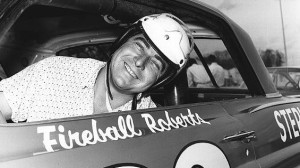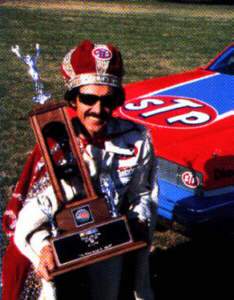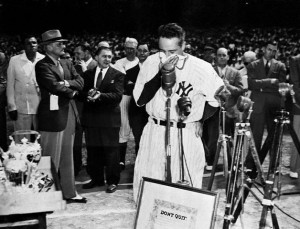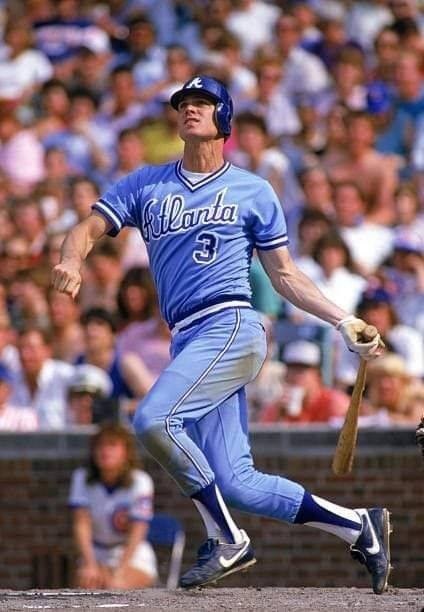Posted on
March 14, 2014 by
Dixie Somers

Fireball Roberts died following a 1964 crash in Charlotte.
When it comes to NASCAR, many people only see cars driving in circles for a few hours, with zero excitement, competition, or intrigue. However, this is a fast-paced, dangerous sport that is never short of close calls and frightening accidents and crashes. Yes, crashes are common in NASCAR, however, some look a lot worse than they actually are. The following are some of the worst crashes we’ve seen since the beginning of NASCAR:
Fireball Roberts, Charlotte 1964
Glenn “Fireball” Roberts was part of a deadly domino effect during the 1964 World 600 when he tried to avoid the crashed cars of Junior Johnson and Ned Jarrett. Roberts’ Ford hit the wall and burst into flames. Badly burnt, he was taken to the hospital where he died weeks later after slipping into a coma. This wreck prompted the development of mandatory fire suits, rubber fuel cells and in-car fire extinguishers.
Richard Petty, Darlington 1970
Richard Petty was part of a bad crash took place in Darlington on May 9, 1970. He broke his shoulder during the Rebel 400 when his Plymouth rolled after making contact with the retaining wall.
It was the first NASCAR accident shown live on TV, and viewers could see Petty’s arm dangle out the side window opening when the car flipped and eventually landed on its roof. This incident prompted NASCAR to install mandatory protective nets subsequently in all its race cars.
Read the rest of this entry →
Tags: Bobby AllisonCarl EdwardsDale EarnhardtFireball RobertsRichard Petty
Category
NASCAR, Sports History
Posted on
July 02, 2011 by
Dean Hybl

Richard Petty was the undisputed King of NASCAR.
Few sports legends are remembered as fondly within the annals of their sport as the King of NASCAR, Richard Petty, who was born 74 years ago today.
As the first crossover superstar of the sport, Petty became a household name to people who had never seen an auto race through a variety of television commercials that began in the 1970s and continue today.
On the track, Petty had no equal as he won a record 200 races and is one of only two drivers (Dale Earnhardt being the other) to win seven NASCAR season championships.
He was the NASCAR Rookie of the Year in 1959 and won his first race the following year. He would win at least one race for 18 consecutive years and claimed his final trip to victory lane in the Firecracker 500 on July 4th 1984.
Petty won a record 27 races (races of 250 miles or less counted on the NASCAR schedule until 1972) in 1967, including 10 victories in a row. He won the Daytona 500 seven times and finished in the top 10 in races 712 times during his career.
After retiring following the 1992 season, Petty served as a team owner and has been involved in many other endeavors, including running for North Carolina Secretary of State in 1996.
He was introduced to an entirely new generation of fans thanks to the 2006 move Cars, where the number 43 car was known as “The King” and Petty served as the voice.
He was among the initial inductees into the NASCAR Hall of Fame in 2010. His father, Lee Petty, was inducted the following year.
Tags: Daytona 500NASCARRichard Petty
Category
General
Posted on
July 04, 2010 by
Dean Hybl

Lou Gehrig's speech was one of the most memorable 4th of July moments in sports history.
The Fourth of July is known for fireworks, patriotism, and family outings, but it’s also a day that has been filled with some great moments in the sports world.
No July 4th moment has been bigger than the day, 71 years ago, when Lou Gehrig stood on the field at Yankee Stadium and proclaimed himself, “The luckiest man on the face of the earth.”
The sudden transformation of Gehrig from the “Iron Horse” to a man for whom a disease would soon be named after was punctuated that day, when the baseball world said goodbye to one of the all-time greats.
Gehrig died less than two years later, but his legacy is still alive today and will be honored in special ceremonies all across the baseball world on Saturday.
Yankee Stadium was the site for another memorable July 4th moment, 44 years later. On July 4, 1983 New York Yankees left-hander Dave Righetti hurled a no-hitter against the Boston Red Sox.
The “no-no” by Righetti, who would go on to earn his greatest distinction as a relief pitcher, was the first by a Yankee since Don Larsen’s perfect game in the 1956 World Series.
More than any other sport though, tennis and the Fourth of July have had a very special history.
The premier tennis tournament in the world, Wimbledon, is contested each year in late June and early July and often crowns a champion on a day that isn’t recognized as fondly in England as it is in the former colonies. Read the rest of this entry →
Tags: John McEnroeJuly 4thLou GehrigRichard Petty
Category
General, Sports History
Posted on
July 04, 2009 by
Dean Hybl

Lou Gehrig's famous farewell address on July 4, 1939
The Fourth of July is known for fireworks, patriotism, and family outings, but it’s also a day that has been filled with some great moments in the sports world.
No July 4th moment has been bigger than the day, 70 years ago, when Lou Gehrig stood on the field at Yankee Stadium and proclaimed himself, “The luckiest man on the face of the earth.”
Read the rest of this entry →
Tags: July 4thLou GehrigRichard Petty
Category
General, Great Moments







